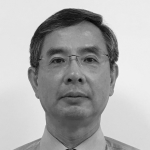Weichyun Wong, president of SCI Pharmtech, discusses the API manufacturer’s transition from a Swiss-owned affiliate to a Taiwanese company. He also talks technology and regulatory challenges, as well as what differentiates SCI Pharmtech from its competitors.
SCI Pharmtech, Inc. has a long-standing presence in Taiwan. Could you tell us a bit about SCI’s recent history and how Swiss heritage contributes to the company’s success today?
The company was established in 1987 in Taiwan and this year we are celebrating our 30th anniversary. SCI Pharmtech, Inc. was an entirely Swiss subsidiary until 2001, when the local company Mercuries acquired 80 percent of shares. This year we have not only changed the shareholding structure, but also changed the name from Siegfried Chemicals to SCI Pharmtech, Inc. In 2004, SCI Pharmtech got listed on the Taiwan Stock Exchange. Currently, Mercuries owns 35 percent of shares, while the rest belongs to the general public and employees of the company. The company is focused on production of APIs, intermediates and specialty chemicals. Last year our annual revenue reached 60 million USD. 50 percent of total revenues count for API category, 40 percent for intermediates and 10 percent for specialty chemicals. In terms of global outspread, Europe counts for 40 percent of total revenues, USA also 40 percent, and Japan and rest of the world share 10 percent of total revenues. SCI Pharmtech, Inc. is mostly focused on exporting markets, as only five percent of our sales is intended for domestic market. Referring to the Swiss heritage, I believe it is very beneficial for the company, as we were trained by Swiss system that taught us how to be efficient and achieve extraordinary results. The company was inspected by US FDA three times. Additionally, we were also audited by EDQM. We pride ourselves on achieving continuous success. Partially, it is a result of our Swiss heritage.
How does being part of the bigger investment holding group (Mercuries) play to your advantage?
In terms of financial support, Mercuries provides excellent assistance. Mercuries itself engages in very diversified business: they own chain restaurants, shoe stores, convenience stores, pharmacies and multimedia. As Mercuries represents holding with diversified operation activities, they can only provide financial support to us. In terms of operations, we are very independent.
SCI Pharmtech, Inc. is an internationally focused company offering quality and cost-effective APIs, advanced intermediates, and custom products. What would you name as the main success factors that determined SCI’s strong standing in the industry not only in Taiwan but also in foreign markets?
The most important factor is technology. Technology used in development process is our strength as we have the ability to come up with advanced and cost-effective process. Secondly, our employees are very capable and talented. Finally, regulatory compliance is also a factor I would like to highlight.
What are the common challenges these companies face and how can you help them to overcome it?
[Featured_in]
Two main challenges are currently prevailing: technology and regulatory compliance. Nowadays, companies often discover a new drug, but are not able to produce it in large scale. We can provide the solution to them. We can integrate our technology to provide “one stop shop” for our customers. By that I mean we provide the total solution for their needs. This applies not only for generics, but also for new drug development companies. In collaboration with the US and UK companies we participate in development of new drugs. Additionally, not only we provide a compound, but we can also assist with regulatory requirements.
From a technology standpoint, what have been the most significant assets and expertise you’ve acquired?
Our strength is manifested through our technology. Over the years, we have acquired and upgraded the level of knowledge for using technology that can provide the lowest cost for our customers. As a simple example, API manufacturers use catalyst for special reactions. Catalyst we use is very expensive to other companies. However, our technology is mature enough that we can use the catalyst so efficiently to exclude it from our cost. In other words, we can achieve the same outcome as our competitors while minimising the cost.
How does SCI Pharmtech Inc. differentiate itself from other big API producers such as Scinopharm and Formosa?
[related_story]
In terms of regulatory documents, we offer transparency. Referring to competitive environment, I would like to point out the specificity of Taiwan API industry: we look at our competitors as our collaborators. We avoid direct competition and try to focus on upgrading our business through collaborative efforts. The most valuable thing we share is the common technology and we are trying to establish a platform for sharing knowledge.
What do you see as the main trends in the industry? How can you exploit them to ensure the growth of the company?
The main trends include increasing requirements in terms of compliance and data integrity. As regulatory compliance presents a potential issue for our company, we are ensuring proper use of management systems. Employing and introducing diversity of systems into business model has proven to be very efficient. Due to its efficiency, we are using this technique to ensure the future growth of the company.
What are your strategic objectives for the upcoming years?
We are focusing on API manufacturing and expanding our factory due to increased capacity expected in the upcoming years. Currently, we are negotiating with the government and applying for new construction. We expect it to be finished in two to three years.
Having been chairman of SCI since 2001, what are your proudest achievements?
Indeed, I have been working for the company for 16 years. I am very proud to say that we have been achieving continuous growth in the last 16 years. Not only have we boosted the growth by increasing revenues, but we also have increased the number of employees by more than double. Our employees are the backbone of our business and they represent a talent pool to whom we owe our ongoing success.







